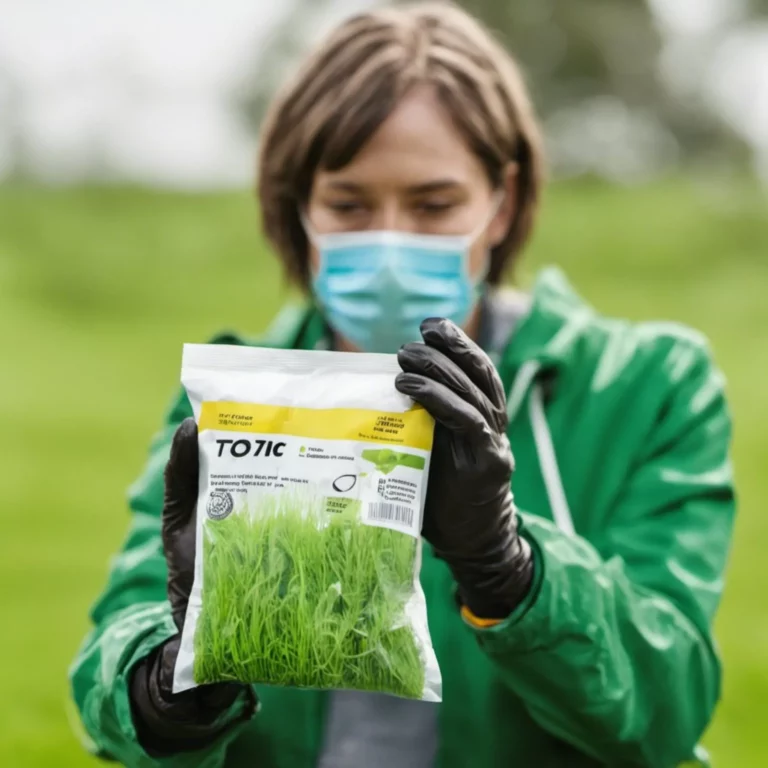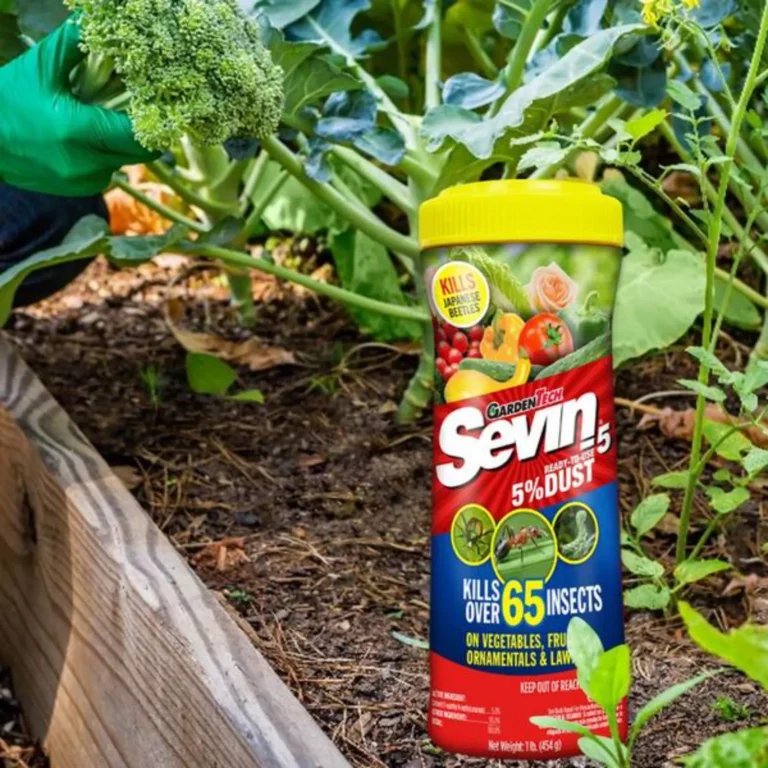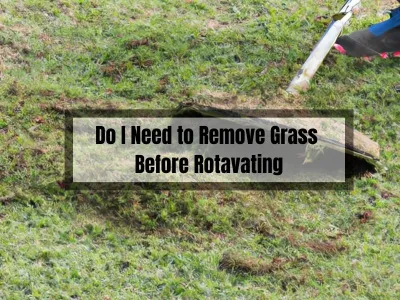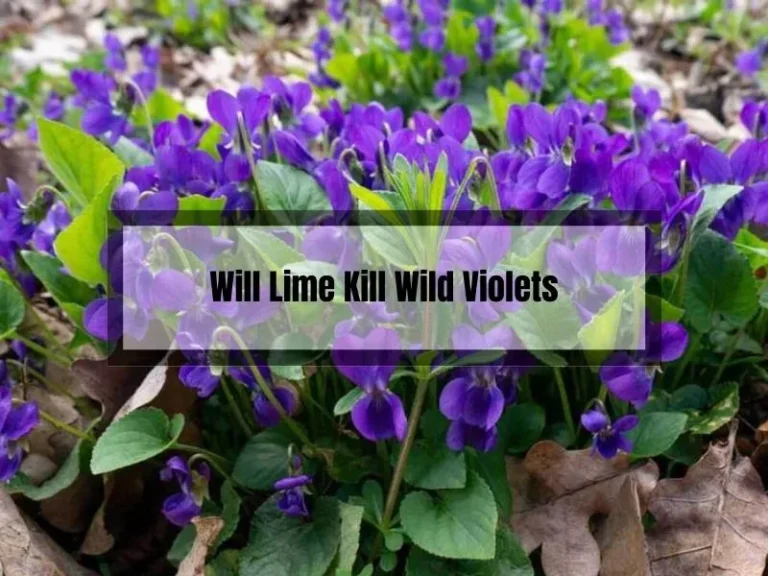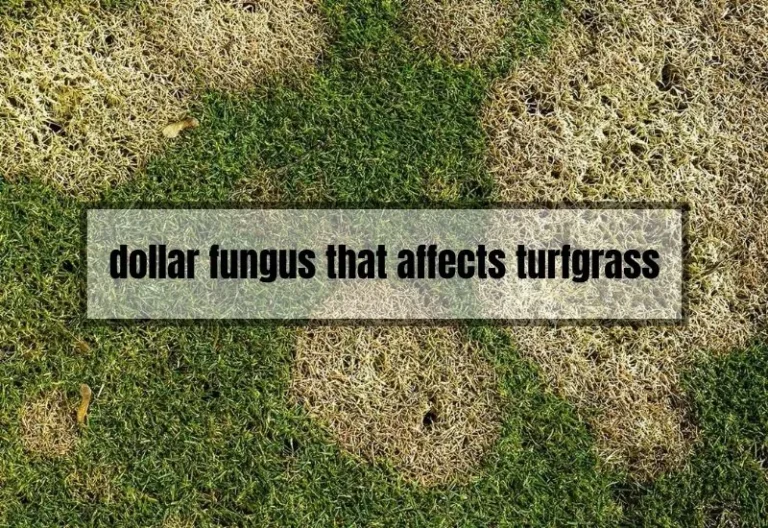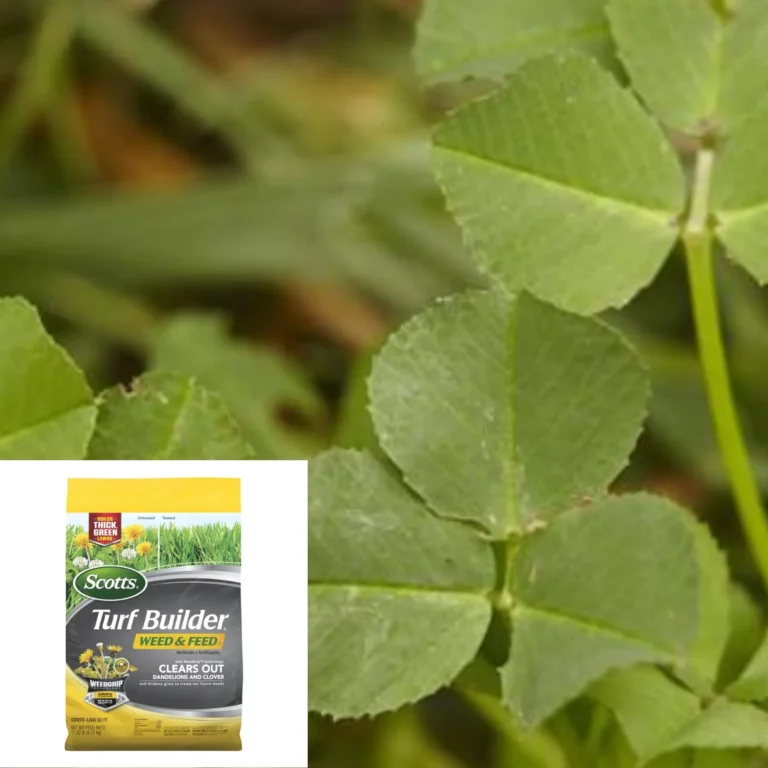Will Vinegar Kill Wild Violets? A Quick Guide to Natural Weed Control
Are you tired of wild violets taking over your lawn or garden? These pretty purple flowers may look harmless, but they can quickly become a nuisance as they spread and take over your grass.
If you’re looking for a natural way to get rid of wild violets, you may have heard that vinegar is an effective solution. But will vinegar really kill wild violets, and is it safe for your plants and lawn?
So today, we’re going to explore a safe and natural method for controlling wild violets – using vinegar as a homemade herbicide solution. Buckle up, fellow garden warriors, because it’s time to dive into the world of weed control!
Key Takeaways
- Vinegar can be an effective solution for killing wild violets, but it should be mixed with water and used carefully to avoid harming other plants.
- Vinegar is a natural and affordable alternative to chemical herbicides, but it may take multiple applications to fully eradicate wild violets.
- If you’re looking for other natural ways to get rid of wild violets, consider using a broadleaf herbicide, hand-pulling, or overseeding your lawn to promote healthy grass growth.

Will Vinegar Kill Wild Violets?
You might be wondering, Can something as simple as vinegar really take on the mighty wild violet? The answer, my friends, is a resounding yes! Vinegar is actually a pretty effective herbicide when used correctly.
To create your own wild violet-busting potion, all you need is 80-percent water and 20-percent vinegar solution. This homemade herbicide has an 80-percent control rate over most broadleaf weeds when sprayed on the offending plant’s foliage.
That means it’s not only great for tackling wild violets but also for handling other pesky weeds that might be trying to crash your garden party.
Benefits of Using Vinegar as a Wild Violet Herbicide
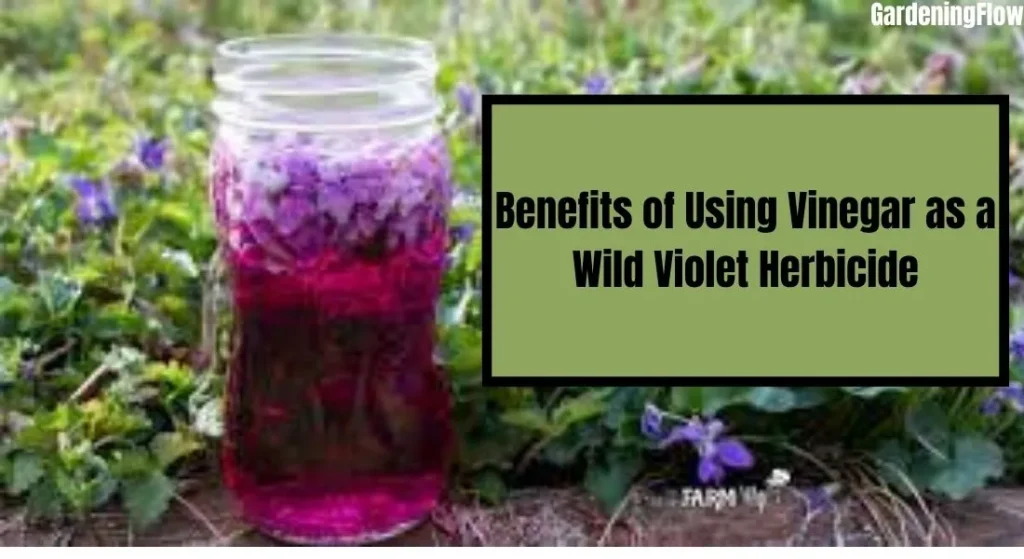
Now that we know vinegar can be a powerful weapon against wild violets, let’s talk about why it’s such a great choice for your garden:
Eco-friendly and Safe for the Environment
One of the biggest benefits of using vinegar as a wild violet herbicide is that it’s eco-friendly and safe for the environment. Unlike some commercial herbicides, which can contain harsh chemicals, vinegar is a natural substance that won’t wreak havoc on Mother Nature.
Plus, it’s biodegradable, so you don’t have to worry about it sticking around and causing problems in the long run.
Cost-effective Compared to Commercial Herbicides
Let’s face it – maintaining a beautiful garden can sometimes be a bit pricey. So, when you can find a cost-effective solution like vinegar to tackle weeds, it’s a win-win.
Vinegar is typically much cheaper than commercial herbicides, and you probably already have some sitting in your pantry, just waiting to be put to good use.
Minimal Harm to Surrounding Plants when Used Properly
We all know that in the heat of battle, there can sometimes be collateral damage. But the good news is that when you use vinegar as a wild violet herbicide, it’s unlikely to cause significant harm to your other plants if applied correctly.
So, with a little care and precision, you can target those pesky wild violets without causing a major upset in your garden ecosystem.
The Effect of Vinegar on Plants
As a gardener, you may have heard that vinegar can be an effective herbicide to kill weeds and wild violets. However, before using vinegar as a herbicide, it’s important to understand how it affects plants.
Acidity of Vinegar
Vinegar is an acidic solution with a pH level of around 2.5 to 3.5, depending on the type of vinegar. This acidity can be harmful to plants, especially when applied in high concentrations.
When vinegar is sprayed on leaves, it can cause the plant tissues to dry out and die. However, the acidity of vinegar can also lower the pH level of the soil, which can make it difficult for plants to absorb nutrients and water.
How Vinegar Affects Plant Growth
While vinegar can be an effective herbicide for killing weeds and wild violets, it can also damage desirable plants if not used properly. Here are a few ways in which vinegar can affect plant growth:
- Stunts growth: The acidity of vinegar can stunt plant growth by inhibiting the plant’s ability to absorb nutrients from the soil.
- Damages leaves: When vinegar is sprayed on leaves, it can cause the leaves to turn brown and die.
- Alters soil pH: As mentioned earlier, the acidity of vinegar can lower the pH level of the soil, making it difficult for plants to absorb nutrients and water.
- Kills beneficial microorganisms: Vinegar can kill beneficial microorganisms in the soil that are important for plant growth.
How to Apply Vinegar to Wild Violets
Ready to get started with your vinegar-based wild violet eradication plan? Here’s what you need to know:
Proper Mixing of the Vinegar Solution
To make your wild violet-killing solution, mix 80 percent water with 20 percent vinegar. You can use white vinegar or apple cider vinegar – both are effective, but white vinegar is usually cheaper and more readily available.
Make sure to mix the solution thoroughly before applying it to the wild violets.
Best Time to Apply the Solution for Optimal Effectiveness
Timing is everything when it comes to using vinegar to kill wild violets. The best time to apply the solution is on a warm, sunny day when there’s no rain in the forecast for at least 24 hours.
This will give the vinegar time to work its magic and weaken the wild violets before any rain has a chance to wash it away. Additionally, it’s a good idea to treat the wild violets when they’re actively growing, as this will increase the likelihood of the vinegar solution being absorbed and effectively killing the plants.
Application of Vinegar on Wild Violets
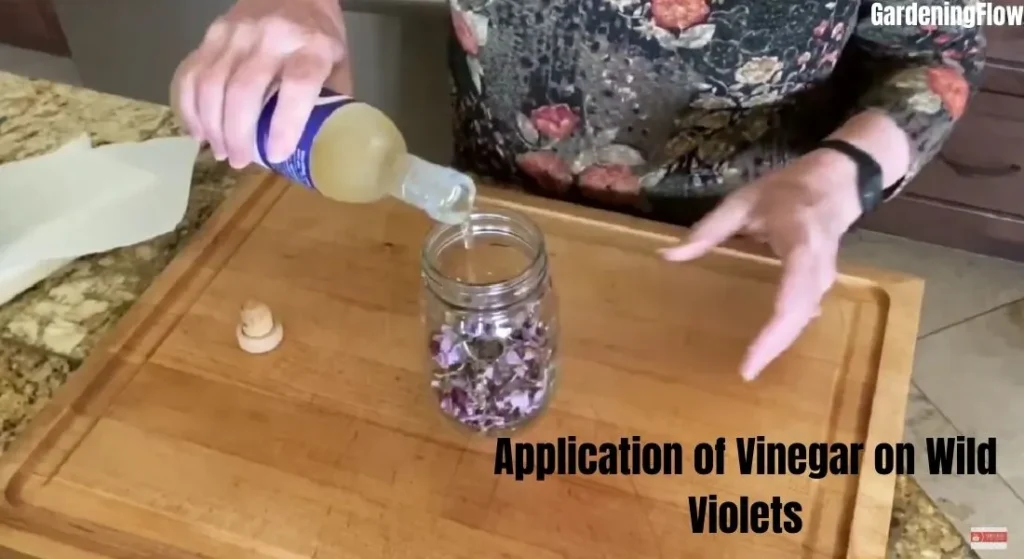
Are you tired of seeing wild violets taking over your lawn and garden? Don’t worry, you can easily get rid of them with a simple homemade solution made with vinegar. In this section, we will guide you through the materials needed and a step-by-step process to apply vinegar on wild violets.
Materials Needed
Before we start, let’s gather all the necessary materials:
- White vinegar or apple cider vinegar
- Water
- Spray bottle or garden sprayer
- Protective gloves
- Protective eyewear
Step-by-Step Process
Follow these simple steps to apply vinegar to wild violets:
- Mix 80% water with 20% vinegar in a spray bottle or garden sprayer. White vinegar is usually cheaper and more readily available, but both white and apple cider vinegar are effective.
- Put on protective gloves and eyewear to avoid any contact with the solution.
- Shake the spray bottle or garden sprayer well to mix the solution thoroughly.
- Spray the solution directly on the wild violets, making sure to cover the leaves and stems thoroughly.
- Wait for a few hours to see the results. The wild violets will start to wilt and turn brown.
- Repeat the process if necessary, especially for larger areas with more wild violets.
Alternatives to Vinegar for Killing Wild Violets
If you have wild violets taking over your lawn, you may be wondering if vinegar is the best solution to get rid of them. While vinegar is a popular and effective natural method to kill wild violets, it is not the only option available. In this section, we will discuss some alternatives to vinegar for killing wild violets.
Commercial Weed Killers
If you prefer a commercial product, there are several broadleaf herbicides on the market that are effective at killing wild violets. However, it is important to read the label carefully and follow the instructions to avoid harming your lawn or other plants in the area. Some of the popular commercial weed killers that you can use include:
- Ortho Weed B Gon Chickweed, Clover & Oxalis Killer for Lawns
- Scotts Turf Builder Weed & Feed
- Bayer Advanced All-In-One Lawn Weed and Crabgrass Killer
Keep in mind that these products contain chemicals that can be harmful to children, pets, and wildlife. Therefore, it is important to use them with caution and follow the instructions carefully.
Natural Methods
If you prefer natural methods, there are several options available to kill wild violets. Here are some of the natural methods that you can use:
- Boiling Water: Pouring boiling water on the wild violets can kill them by scorching the leaves and roots.
- Corn Gluten Meal: This is a natural pre-emergent herbicide that prevents the seeds of wild violets from germinating.
- Hand Pulling: You can also hand pull the wild violets from your lawn. However, this method may not be effective if the roots are deep.
- Mulching: Mulching your lawn can prevent the growth of wild violets by depriving them of sunlight.
It is important to note that natural methods may take longer to show results compared to chemical herbicides. However, they are safer for the environment and do not harm beneficial insects or animals.
FAQs
How long does it take for vinegar to kill wild violets?
The exact time it takes for vinegar to kill wild violets can vary depending on factors such as the size and health of the plant, the weather, and the concentration of the vinegar solution. However, you should typically see results within a few days to a week after applying the solution.
Can vinegar harm other plants in my garden?
Yes, vinegar can harm other plants in your garden if it comes into contact with them. It’s essential to be precise when applying the vinegar solution to wild violets to avoid damaging your other plants.
What other weeds can be controlled using the vinegar solution?
The vinegar solution can be effective in controlling a variety of broadleaf weeds, including dandelions, chickweed, and plantain. However, always test the solution on a small area first to ensure that it’s effective and won’t cause unintended damage to your garden.
Is there a specific type of vinegar that is more effective for killing wild violets?
Both white vinegar and apple cider vinegar can be effective for killing wild violets. However, white vinegar is typically cheaper and more readily available, making it the preferred option for most gardeners.
Conclusion
Well, fellow garden warriors, there you have it! Armed with your trusty vinegar solution, you’re now ready to face the wild violet menace head-on and reclaim your garden. Not only is vinegar an effective homemade herbicide for wild violets, but it’s also eco-friendly, cost-effective, and relatively safe for your other plants when used with care.
Remember, there’s no one-size-fits-all solution for every garden or gardener, so it’s always a good idea to explore various methods for controlling wild violets and other weeds. Keep experimenting with different natural methods, like boiling water, salt solutions, and manual removal, to find the approach that works best for you and your garden.
In the end, the key to a beautiful, weed-free garden is persistence, determination, and a little bit of creativity. So, don’t be afraid to roll up your sleeves, try new techniques, and share your experiences with fellow gardeners. Together, we can make the world a greener, more vibrant place – one garden at a time.
Happy gardening, and may your battles against wild violets be victorious!
Related Posts:

